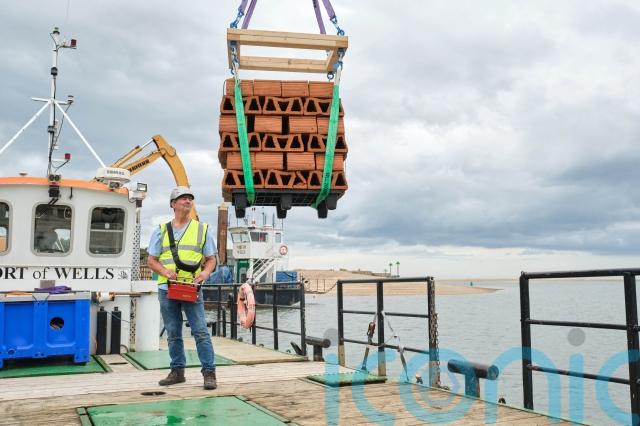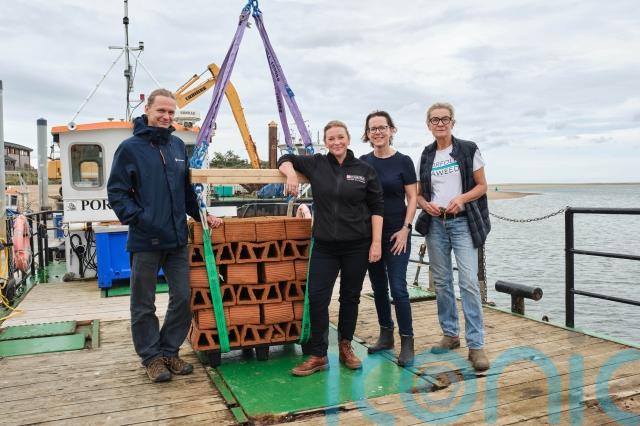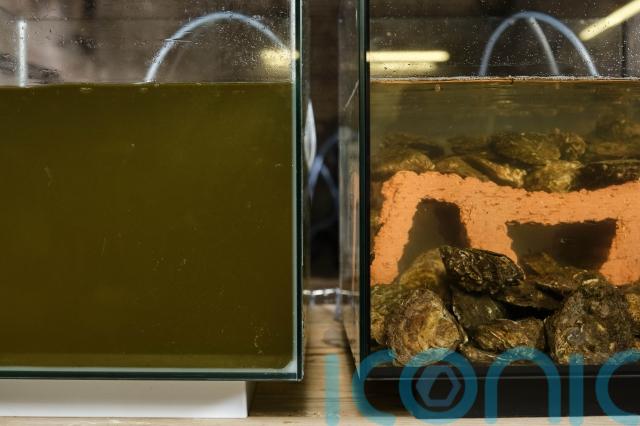
An oyster reef being built off the Norfolk coast has been hailed as a pioneering project that could help increase biodiversity.
At least four million oysters will be placed into the North Sea just off Blakeney Point by the end of 2026, with work starting this month.
The juvenile oysters, called spats, will be spread across 40,000 specially designed clay bricks known as mother reefs.
Marine conservation organisation Oyster Heaven, which is behind the project, hopes they will form the basis for a larger self-sustaining reef over time.
The reef is being constructed under a seaweed farm so it is physically impossible to trawl and there is no new squeeze on space for fishermen.
Piers Hart, aquaculture adviser for environmental charity the World Wildlife Fund (WWF), said it was a “pioneering project”.

He said he became aware of it as he was working with the seaweed farm as part of a WWF project.
“It’s all part of basically an idea of creating increased biodiversity in the region,” he said.
“The structures of the oyster reef and the seaweed farm provide structures for animals to live on, and around that ecosystems build up with fish arriving and all that sort of thing.
“It’s quite a big interest to us.”

He continued: “Oysters used to be very common around the coast of the UK but they’re almost extinct now, the native oyster.
“The idea of putting them back is something that’s going on in quite a number of areas.
“They were very common in the Victorian age and a common part of the diet but unfortunately we ate them all so there were none left.
“This is part of a project bringing them back.

“The reefs also provide some protection to the coastline because they break up the waves, as do the seaweed farms.
“There are a lot of benefits, but the main benefit is biodiversity and water quality improvement.
“Oysters filter the water and remove nutrients and help to clean up the coast.”
He said the oysters were not to be eaten or used in products, and were being placed there for the environmental benefits.

Mr Hart said it was a long-term project with small changes over time, and monitoring would be needed as “we don’t really know what the long-term benefits will be in any detail”.
“It’s very early days and it’s the first one we’ve been anywhere near to and that’s simply because we’re working with the seaweed farm as part of our wholescapes work,” he said.
He added: “I hope to see a lot more of them.”
George Birch, Founder of Oyster Heaven, said: “Building an oyster reef is all about large numbers to create population tipping points and provide a suitable habitat.”
He said the reef would “act as a foundation for the whole ecosystem, generating an oasis of life on the seafloor”.
Pet food firm Purina is helping to fund the project, with detail around the level of funding not disclosed due to commercial confidentiality.
Mr Birch said that “most marine conservation initiatives depend on philanthropy and funds, which are often hard to find” and that “this can limit their impact”.
“Oyster Heaven sells natural services to companies to help them improve supply chain resilience,” he said.
Subscribe or register today to discover more from DonegalLive.ie
Buy the e-paper of the Donegal Democrat, Donegal People's Press, Donegal Post and Inish Times here for instant access to Donegal's premier news titles.
Keep up with the latest news from Donegal with our daily newsletter featuring the most important stories of the day delivered to your inbox every evening at 5pm.